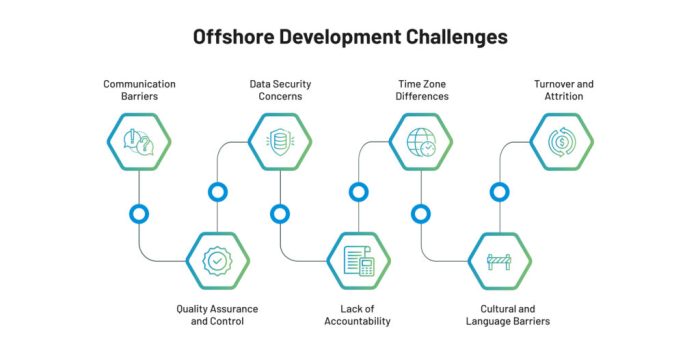In today’s fast-paced digital landscape, businesses are increasingly turning to offshore software development teams to enhance their technological capabilities while controlling costs. This article delves into the intricacies of offshore software development, its benefits, challenges, and best practices. We’ll also explore related s that can improve your understanding and optimization.
What is Offshore Software Development?: Offshore Software Development Teams
Offshore software development refers to the practice of hiring software development services from companies located in different countries, often at a lower cost than hiring locally. This strategy allows businesses to tap into a global talent pool while focusing on their core operations.
Benefits of Offshore Software Development Teams
There are several advantages to utilizing offshore software development teams, including:
- Cost Efficiency: Offshore teams can significantly reduce development costs due to lower labor expenses in different countries.
- Access to Global Talent: Businesses can hire skilled developers with diverse expertise and experience from around the world.
- Scalability: Companies can quickly scale their development teams up or down based on project requirements.
- Focus on Core Business: By outsourcing software development, businesses can concentrate on their main operations without getting bogged down in technical details.
- Time Zone Advantages: Working with teams in different time zones can lead to faster project completion through round-the-clock development.
Challenges of Offshore Software Development
While there are numerous benefits, there are also challenges associated with offshore software development teams:
- Communication Barriers: Language differences and cultural nuances can lead to misunderstandings and inefficiencies.
- Time Zone Differences: Coordinating meetings and project updates across different time zones can be tricky.
- Quality Control: Maintaining the desired quality of work can be challenging if the offshore team is not well-managed.
- Security Risks: Sharing sensitive data with offshore teams may expose businesses to potential security threats.
Choosing the Right Offshore Software Development Team
Selecting the right offshore team is crucial for the success of your project. Here are some tips to help you choose effectively:
- Define Your Requirements: Clearly Artikel the scope, objectives, and timelines of your project.
- Research Potential Partners: Look for companies with a proven track record and positive reviews from previous clients.
- Evaluate Communication Skills: Ensure that the team can communicate effectively and is responsive to your inquiries.
- Check References: Don’t hesitate to ask for references and follow up with them to gauge the quality of work.
- Discuss Security Measures: Make sure the offshore company has robust security protocols in place to protect your data.
Best Practices for Managing Offshore Development Teams
To ensure the success of your offshore development project, consider these best practices:
- Establish Clear Communication Channels: Use tools like Slack, Zoom, or Microsoft Teams to facilitate regular communication.
- Set Regular Check-ins: Schedule weekly or biweekly meetings to discuss progress and address any concerns.
- Use Project Management Tools: Tools like Trello, Asana, or Jira can help keep the project organized and on track.
- Foster a Collaborative Culture: Encourage team bonding through virtual team-building activities to strengthen relationships.
- Provide Feedback: Regularly give constructive feedback to ensure the team remains aligned with your expectations.
Conclusion
Offshore software development teams present an excellent opportunity for businesses to enhance their capabilities while managing costs. However, it’s essential to navigate the challenges carefully and implement effective management practices. By choosing the right team and fostering clear communication, businesses can reap the numerous benefits of offshore software development.
Frequently Asked Questions (FAQs)
1. What countries are known for offshore software development?
Countries like India, China, Ukraine, and the Philippines are popular choices for offshore software development due to their skilled workforce and cost-effectiveness.
2. How do I ensure the quality of work from an offshore team?, Offshore software development teams
Implement strict quality control measures, conduct regular reviews, and maintain open communication to ensure the offshore team meets your standards.

Source: amazonaws.com
3. What tools can facilitate communication with an offshore team?
Tools such as Slack, Zoom, Microsoft Teams, and email can help bridge communication gaps between your team and the offshore developers.
4. How can I handle time zone differences effectively?
Utilize shared calendars, schedule meetings during overlapping hours, and establish clear deadlines to manage time zone challenges.

Source: bigohtech.com
5. What are the security concerns with offshore development?
Ensure that your offshore partner has robust data protection policies in place and utilizes secure communication channels to mitigate security risks.
Call to Action: Are you considering offshore software development for your next project? Contact us today for a consultation and let us guide you in choosing the right team to meet your specific needs!

Source: joingenius.com
Quick FAQs
What are the main advantages of offshore software development teams?
Key benefits include cost savings, access to a broader talent pool, faster project delivery, and the ability to scale resources as needed.
How do I choose the right offshore development partner?
Evaluate potential partners based on their expertise, communication skills, previous projects, and cultural alignment with your company.
What challenges might I face when working with offshore teams?
Challenges can include time zone differences, communication barriers, and varying work cultures, but they can be managed with effective strategies.
How can I ensure quality in offshore software development?
Implement regular check-ins, set clear expectations, and leverage tools for collaboration and project management to maintain quality control.
Is it possible to integrate offshore teams with in-house staff?
Yes, with proper communication channels and project management practices, offshore teams can work seamlessly alongside in-house staff.
